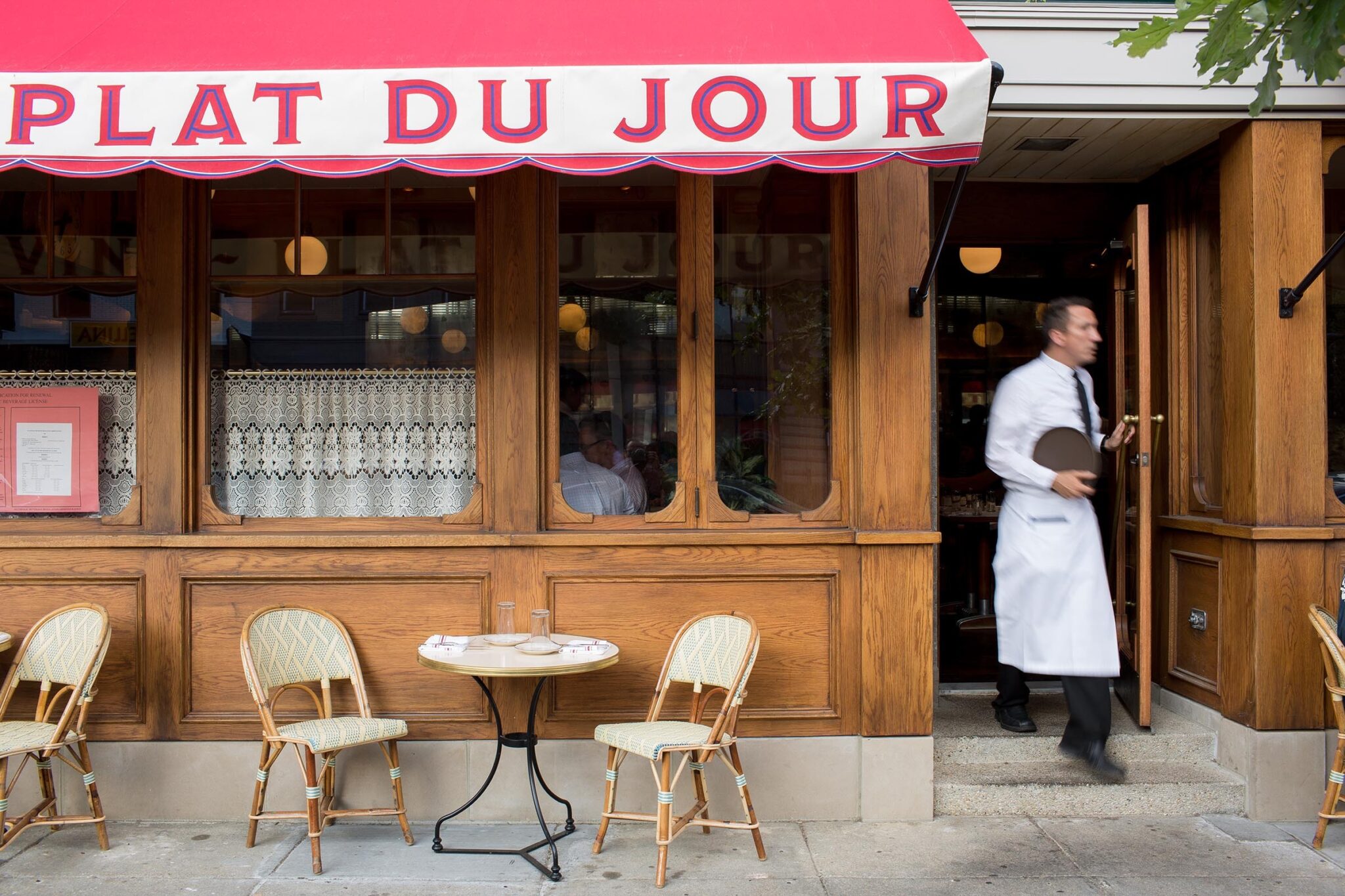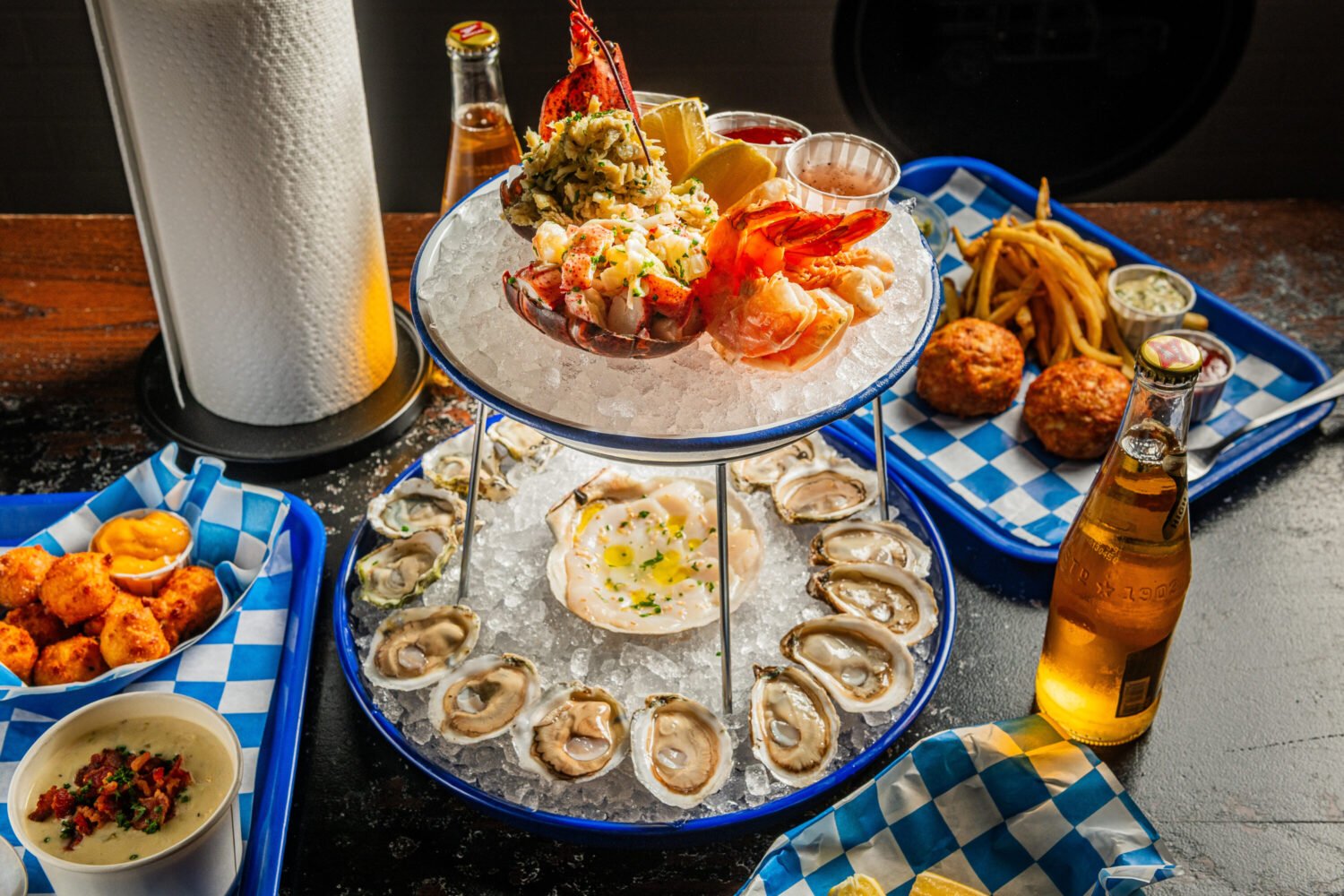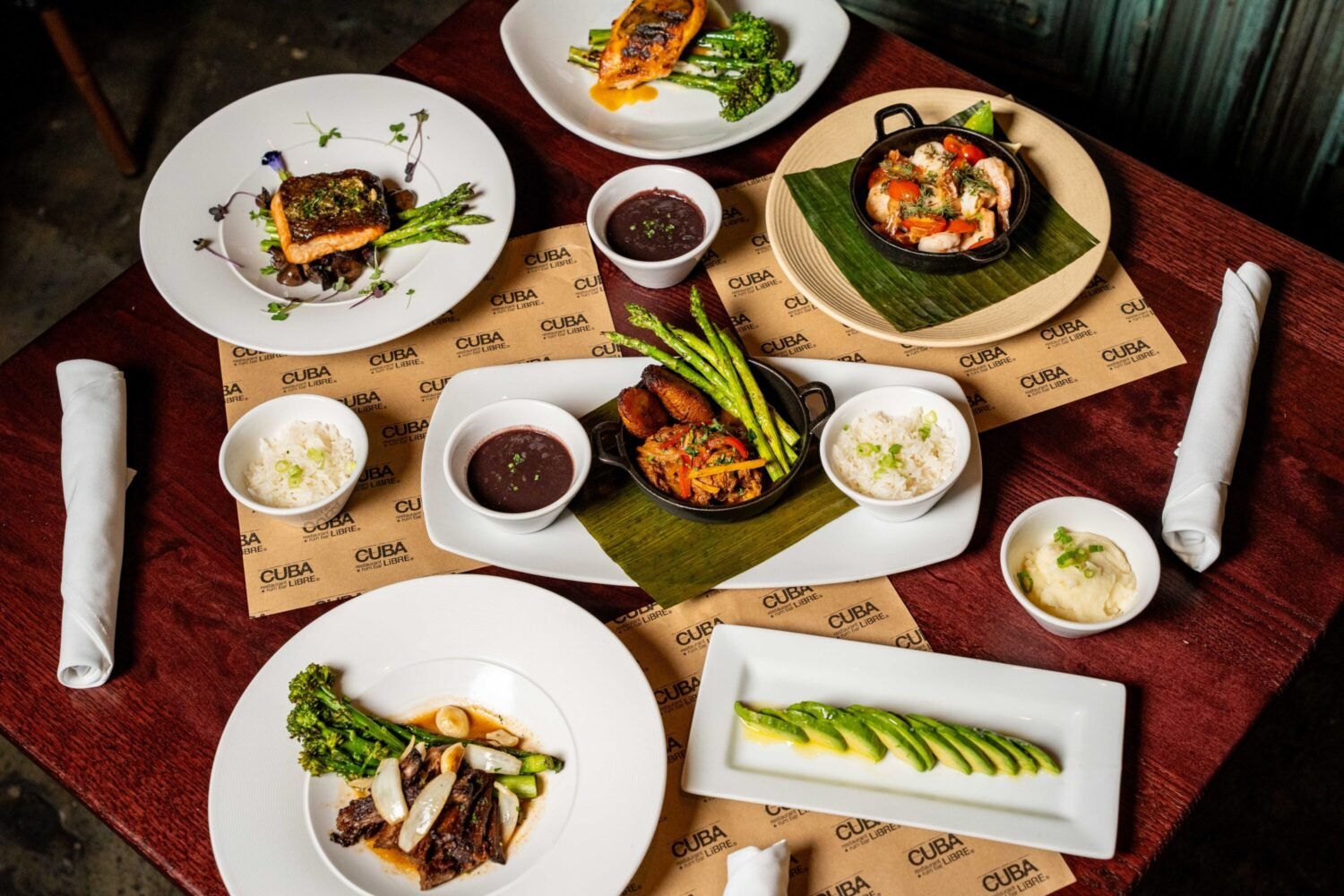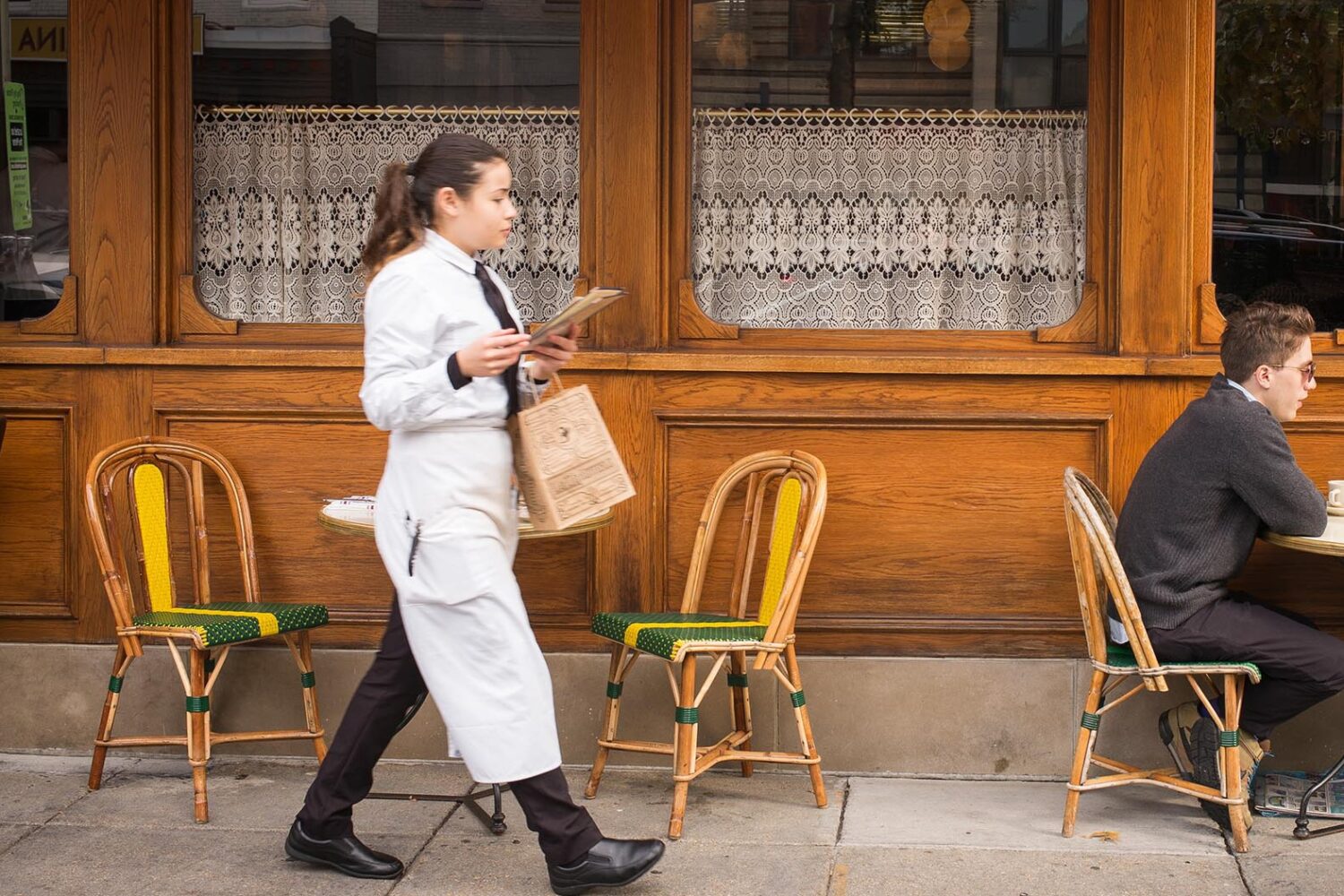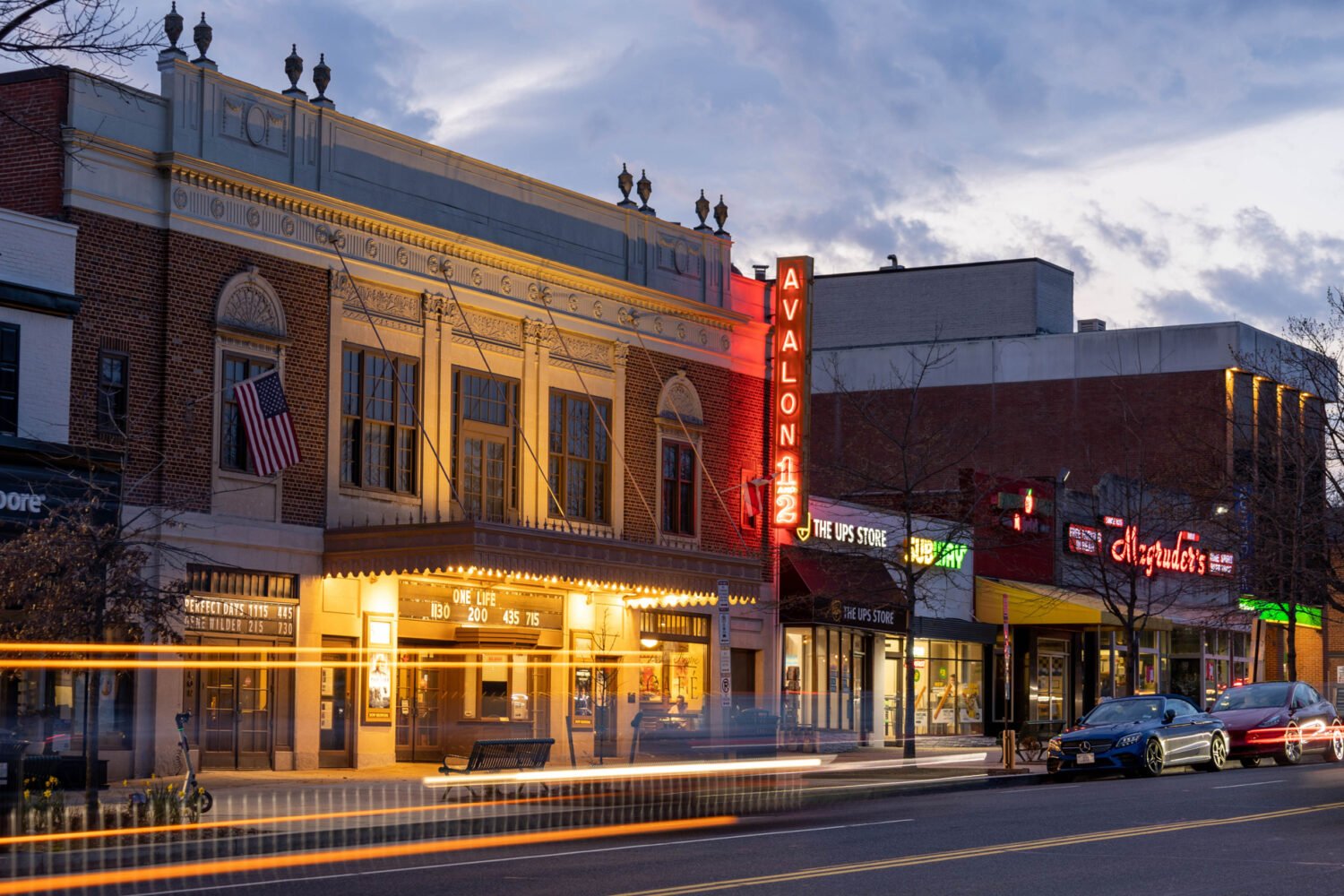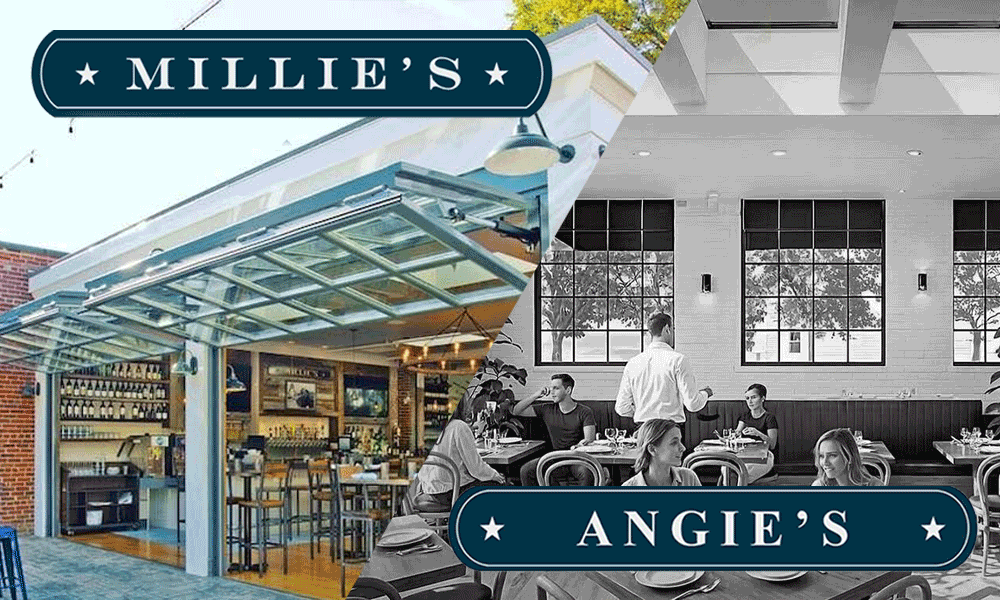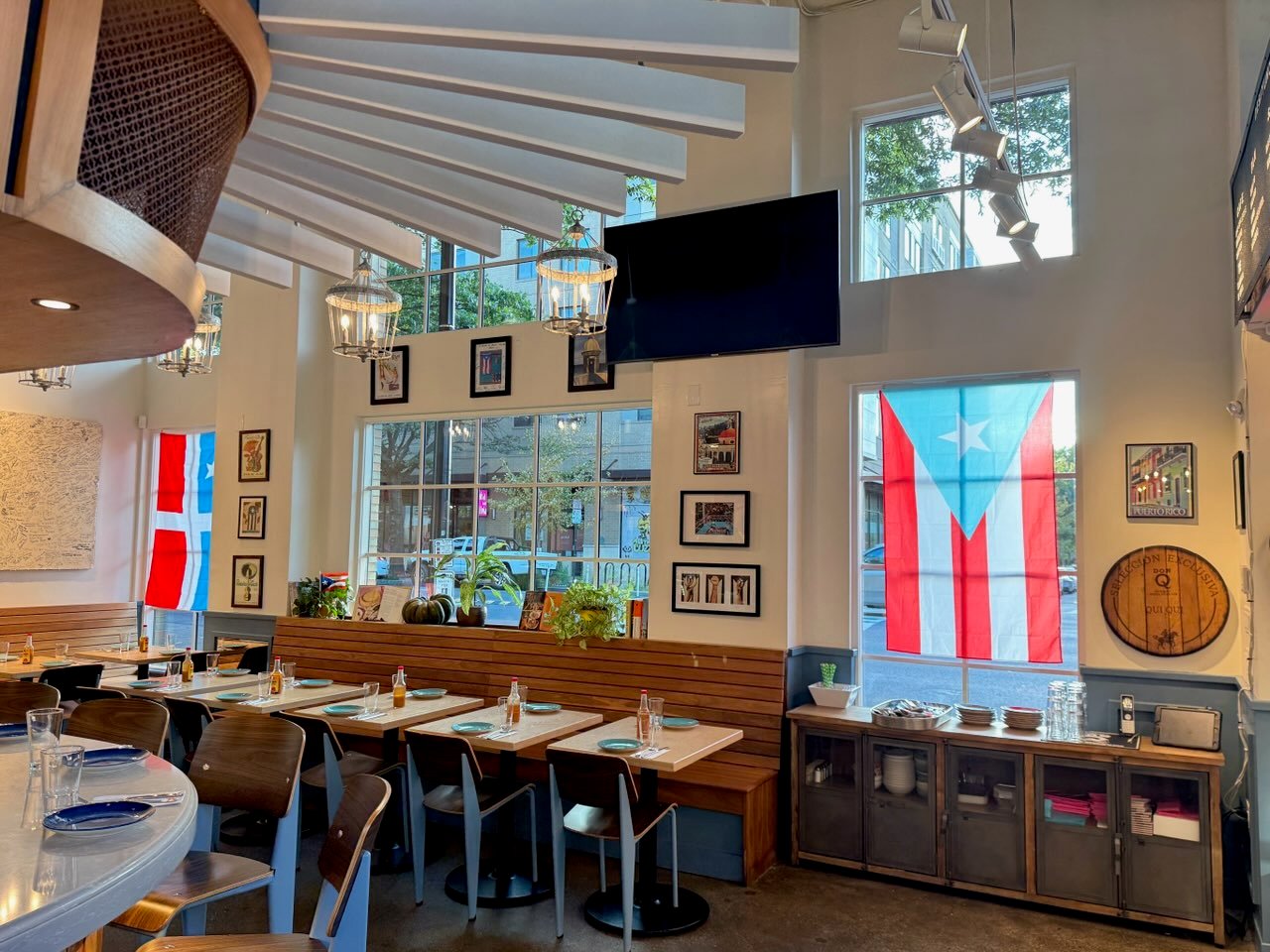DC’s tipped wage will not be phased out by 2027 as scheduled. Instead, the DC Council voted 7 to 5 today to partially repeal Initiative 82, slowing down increases in the tipped wage and ultimately capping it at 75 percent of the full minimum wage from 2034 on.
The tipped wage will remain at the current rate of $10 an hour until next summer. (Employers are still required to make up the difference between the tipped wage and DC’s full $17.95 minimum wage if gratuities don’t cover it.) Things get a little confusing from there: on July 1, 2026, the tipped wage will increase to 56 percent of the full minimum wage. Beginning July 1, 2028, the tipped wage will be 60 percent of the minimum wage. Every two years from then on, that percentage will go up by 5 percent, so that by July 1, 2034, the tipped wage would be 75 percent of the minimum wage. It would remain at that rate every year after.
The change was billed by councilmembers Charles Allen and Christina Henderson, who sponsored the amendment, as a compromise following a bitter fight over the pay of restaurant and other tipped workers. Mayor Muriel Bowser, backed by the Restaurant Association Metropolitan Washington, had proposed reverting the tipped wage to $5.95 an hour. Meanwhile, proponents of “one fair wage” have fought to continue the rollout of Initiative 82, a ballot initiative which was passed with nearly 75 percent of the vote in 2022.
Those in favor of Initiative 82 have argued that eliminating tips from workers’ base wages will offer them more stability and make their livelihoods less dependent on the whims and biases of strangers, while also reducing the chance for wage theft.
Meanwhile, opponents of the law—notably the local restaurant association—say the increased labor costs for restaurants have already led to staff cuts, lower pay, the proliferation of unpopular service fees, and ultimately, restaurant closures. A handful of restaurants that closed this year—including Haikan, Sticky Rice, and Brookland’s Finest—cited Initiative 82 among their reasons for calling it quits.
“No one is happy 100 percent here,” Henderson said. “We want workers to be able to have the annual wage growth and restaurants to be able to have a more manageable labor cost. And we think that this strikes the balance.”
The amendment also requires employers to provide a detailed breakdown of all sources of wages on pay stubs, so that workers are aware of how their pay is calculated. It also requires the Office of the Chief Financial Officer to conduct a biannual study of tax data for restaurants and tipped workers in order to provide neutral information on the industry’s health and worker pay.
Different groups have offered conflicting data on the impact of Initiative 82 on the local economy and restaurant workforce. The Employment Policies Institute—a group against Initiative 82—claims DC’s full-service restaurant workers have lost $11.8 million in earnings since the ballot measure passed. They also cite data showing a 5 percent employment loss in the industry and predicting more job loss to come.
Meanwhile, DC’s own Budget Director offered a rosier picture in a recent memo, reporting that the restaurant industry “remains healthy” with a growing workforce, increasing number of restaurants, and rising average wages.
Although the Restaurant Association Metropolitan Washington favored a full repeal, the group ultimately called the council decision “a win for the industry.” “The Council’s vote reflects recognition that the original path forward was not sustainable. While not a full repeal, this outcome brings immediate relief to operators,” the group said in a written statement.
Meanwhile, One Fair Wage, an advocacy group in favor of Initiative 82, called the council’s move “a betrayal of democracy and gift to the restaurant lobby.” This is the second time DC Council has reversed or altered a decision made by voters on eliminating the tipped wage. A similar ballot measure, Initiative 77, was overturned by the DC Council in 2018.
“The voters told us what they wanted when they voted overwhelmingly for I-82—twice—and this is not it,” said councilmember Brianne Nadeau, who was among the five “no” votes. “Restaurant workers and the organizations that represent them have been fighting this battle for wage protections for years, and they shouldn’t have to keep fighting it. And this council should not keep on telling the voters they don’t know what’s best for themselves.”
This story is breaking and will be updated.

